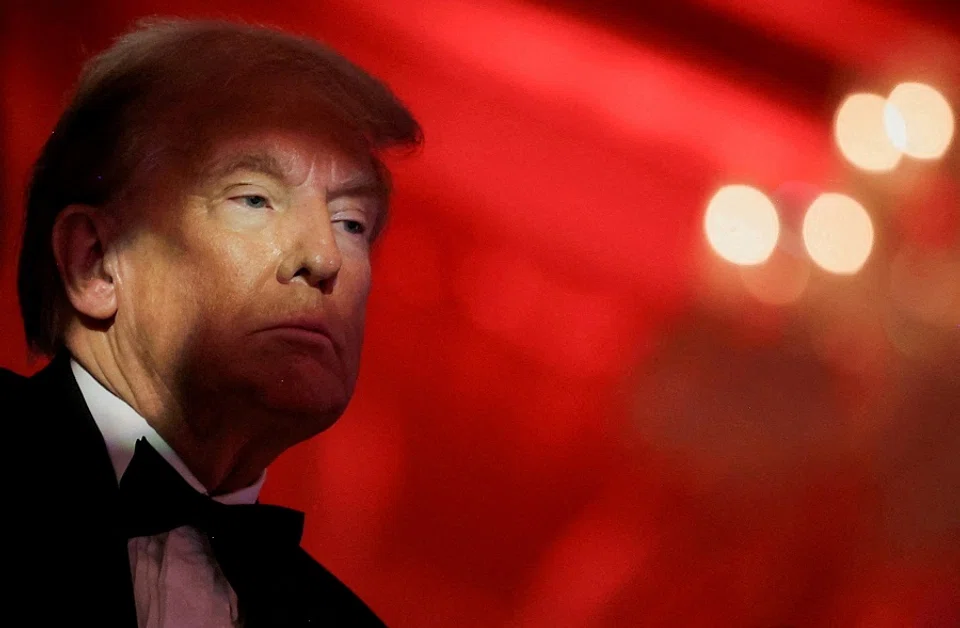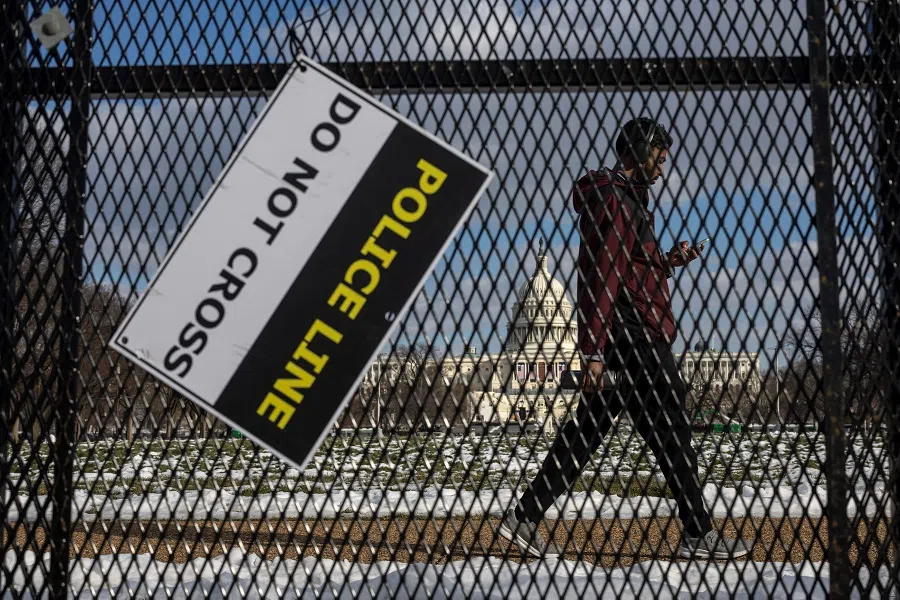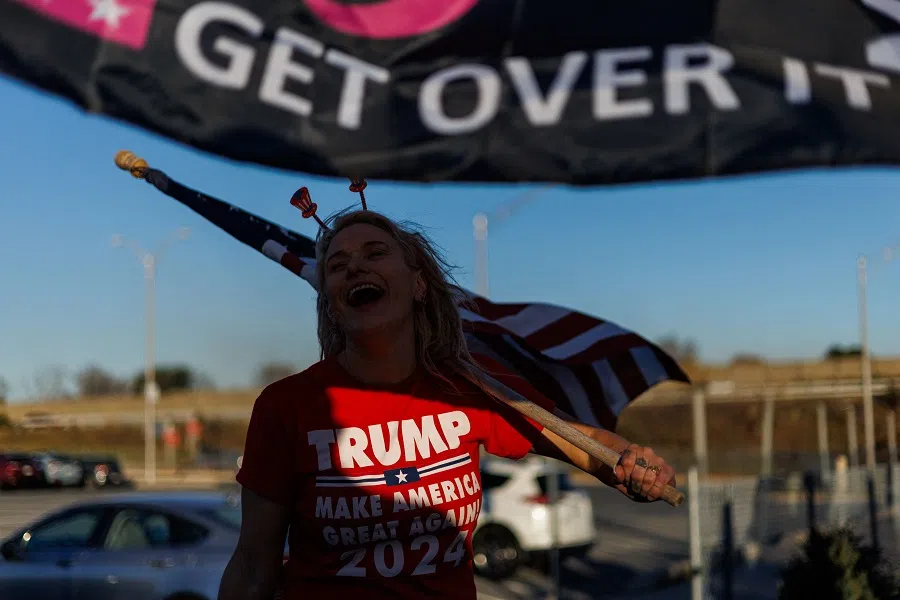The ‘impossible trinity’ in China-US relations
Among a powerful China, an unchanging Chinese political system, and continued friendly cooperation between China and the US, an “impossible trinity” has formed. What would this mean for US-China relations in Donald Trump’s second term? Academic Fei-Ling Wang explores the issue.

Former US President Donald Trump is set to return to the White House for the second time on 20 January 2025, with the world watching closely. Many observers in the Chinese-speaking world believe that a “Cultural Revolution” of sorts is imminent in American politics, characterised by a disregard for tradition and institutions, a one-party or even one-man rule, and the inexperienced leading the experienced.
Some are happy to see this happen, hoping for the resurgence of American power, while others worry about the potential damage to the US’s stability, unity and global leadership. Still others rejoice in the notion that the “American empire” is becoming less formidable, viewing it as a new opportunity in a changing global landscape where the East is rising and the West is declining.
Indeed, Trump’s two election wins and leadership style, especially his unconventional statements, have significantly affected the US’s domestic and foreign affairs; he is even seen as an unpredictable and unreliable “rebel”.
In certain areas, such as electoral politics, he has indeed brought about unprecedented and almost revolutionary changes. However, in terms of the true meaning of “revolution”, Trump’s impact does not quite amount to a political revolution. If anything, it is more so a policy “disruption” than an institutional “destruction”, largely causing significant swings and shifts within the same fundamental framework rather than breaking or replacing that framework. Of course, this assessment may only become clearer by the end of his second term, or at least by the midterm elections in 2026.
... the White House’s capacity for enacting revolutionary “new policies” is actually quite limited. US policy toward China has been characterised by a high degree of bipartisan consensus for over a decade, with the general direction firmly established.
The US system
Like any other country throughout history, the US has its share of individuals who — much like the leaders and vanguards of China’s Cultural Revolution — harbour revolutionary impulses and intentions to overthrow the existing order, because in the group politics of human societies, there exists a deep-rooted and inherent preference for the establishment of “good” authoritarian or even dictatorial rule, as well as the overthrow of “bad” governance.

However, the US possesses a multifaceted, complex and longstanding tradition of decentralisation and checks and balances. Any major political shift, whether to the left or to the right, is challenging and slow to implement, let alone a massive revolution or destruction by the voice of a single man.
In American politics, one-party dominance is typically limited in scope, rarely exceeding four years and often lasting only two. One-man rule is even more challenging to achieve; more restricted in scope and shorter-lived. Apart from some specific foreign policy decisions, the White House’s capacity for enacting revolutionary “new policies” is actually quite limited. US policy toward China has been characterised by a high degree of bipartisan consensus for over a decade, with the general direction firmly established.
Faced with multiple goals and values, people naturally want to have it all; Americans are no exception. However, the two principles of limited resources and unlimited wants dictate that pursuing multiple objectives simultaneously often yields suboptimal results — trying to achieve too much at once inevitably makes it difficult to balance them all. Most worthwhile goals in life, for organisations, and for nations require prioritisation, sequencing, balancing, and even substitution. It is said that just a small handful of people — less than 5% — are able to multitask effectively. The true source of human strength lies in organised and focused distribution of labour and collaboration.
In a political life, it is difficult to simultaneously and equally optimise the three great goals of institutional stability and control, equal rights for all, and overall efficiency and innovation.
The ‘impossible trinity’
Social scientists have already extensively described and discussed these kinds of suboptimal phenomena in human behaviour. Over 50 years ago, two Western economists came up with the Mundell-Fleming model, arguing that an economy cannot simultaneously achieve three desirable external economic policy objectives: free capital movement, a fixed exchange rate and an independent monetary policy. It can only choose to optimise one, at most two, of these objectives. More often than not, they can only establish a system of trade-offs, balance, and adjustments among the three.
This famous trilemma in international finance theory, also known as the “impossible trinity”, can in fact help us better understand American politics and China-US relations.

In a political life, it is difficult to simultaneously and equally optimise the three great goals of institutional stability and control, equal rights for all, and overall efficiency and innovation. The most ideal scenario would likely be to establish a dynamic equilibrium that considers all three and is constantly adjusted. In theory and practice, one of the least bad political equilibriums that humanity has discovered is the liberal democratic rule of law.
Of course, unlike natural laws such as gravity, man-made laws do not automatically enforce themselves. Either everyone voluntarily obeys the law, or someone must enforce it — a more reliable and common approach involves a combination of both.
Therefore, just like social etiquette and cultural customs, any political system will require continuous internalisation and maintenance. The better a political and legal system is, such as the liberal democratic rule of law, the more it requires deliberate maintenance and nurturing. This is because authoritarian and even dictatorial rule, which runs counter to democracy, is actually more aligned with human nature and instincts.
To safeguard such “unnatural” but preferable political systems, institutional stability is essential, as is timely policy adjustment. There must be enough space to allow and even encourage trial and error, as well as innovations that might “overcorrect” issues. At the same time, there needs to be a pendulum-like corrective mechanism to ensure that such “overcorrections” are not prolonged.
Comparatively, the US political and legal system, while far from perfect, is relatively effective in addressing this political dilemma or trilemma. Its operation involves continuous oscillation between left and right, swaying and stumbling forward, with rare instances of one-sided, revolutionary change.

After the 2024 US elections, while the Republican Party has achieved a rare trifecta, controlling the legislative, executive, and judicial branches of the federal government, its advantage is limited. While Trump indeed won the Electoral College (312 to 226), he only gained a 1.5% margin in terms of popular votes. More importantly, US political parties lack the ironclad discipline of complete obedience to a central authority, and there is certainly no concept of “never betraying the party”. Trump himself was three times a Republican, once a Democrat and once an independent.
... among a powerful China, an unchanging Chinese political system, and continued friendly cooperation between China and the US, an “impossible trinity” has formed.
The ‘impossible trinity’ in China-US relations
The “impossible trinity” can also be used to understand China-US relations. Peking University professor Wang Jisi recently gave an interview to foreign media in which he astutely pointed out that the key to navigating China-US relations and avoiding a zero-sum game or life-or-death struggle lies in reducing mutual suspicion: “Currently, the US’s greatest suspicion is that China’s strategic intention is to disrupt and even overthrow the world order that the US seeks to maintain, and to replace the US as the global hegemon… China’s greatest suspicion about the US is that the US seeks to change its political system… This mutual strategic suspicion is unlikely to diminish in the foreseeable future. I hope that the gradual increase in people-to-people exchanges can reduce this suspicion to some extent, but I am not confident about this.”
While applauding my old friend’s insightful remarks, allow me to offer a few additional points. The US does not actually intend to change China’s political system, unless “forced” to do so by the growing power and challenge presented by that system. Beijing not only harbours suspicions but has consistently viewed the US as the primary “external hostile force” and is constantly fighting against it, fighting less when strength is limited and more when it wields greater strength.
If China insists on maintaining its system’s perspectives that oppose those of the US and the West — its views on life, values, and the world — only if China’s national power is limited would the US not have suspicions or be concerned. Therefore, among a powerful China, an unchanging Chinese political system, and continued friendly cooperation between China and the US, an “impossible trinity” has formed.. One or even two may be achieved, but attaining all three would be difficult.
... there will not be war in the Taiwan Strait in the next four years, and neither will there be a cold war between China and the US, as China-US competition is over technology and national strength, not ideology. — Professor Yan Xuetong, Tsinghua University
China unafraid of Trump
Tsinghua University professor Yan Xuetong recently published a commentary in American magazine Foreign Affairs, expressing his opinion that Beijing is not afraid of Trump’s return to power, and even welcomes it, despite his initiation of the trade war four years ago and his frequent unfiltered remarks. He thinks that there will not be war in the Taiwan Strait in the next four years, and neither will there be a cold war between China and the US, as China-US competition is over technology and national strength, not ideology. The power gap and future relationship between both countries will depend on the success and quality of much-needed internal reforms in each country; Trump is likely to harm the US more than China, which actually benefits China.

As always, I admire my old friend’s sharp and realistic analysis. Of course, I also hope that the Taiwan Strait will remain peaceful as predicted. However, in my humble opinion, focusing solely on national strength in the analysis may be insufficient, as it overlooks a crucial aspect of the “impossible trinity” in China-US relations: the opposing worldviews and differing visions for the future held by each nation. In fact, if China were as weak as North Korea, the US would have no need for a new Cold War. Similarly, if China’s worldview aligned with the US, like that of the European Union (EU), a Cold War would be unnecessary.
However, if China were as different as North Korea yet as strong as the EU, it would be inconsistent with pragmatic reasoning of national behaviour, for the US not to engage in a zero-sum game at a time and place of its choosing, using methods it deems appropriate.
Within the “impossible trinity” of China’s strength, system and friendly relations with the US, internal reform is indeed crucial. The way choices are made within this trinity is likely the key to maintaining peace in the Taiwan Strait, the Asia-Pacific region, and the world.
This article was first published in Lianhe Zaobao as “中美关系里的不可能三角”.





